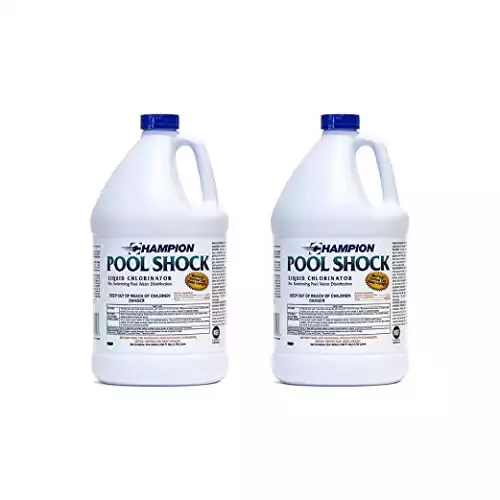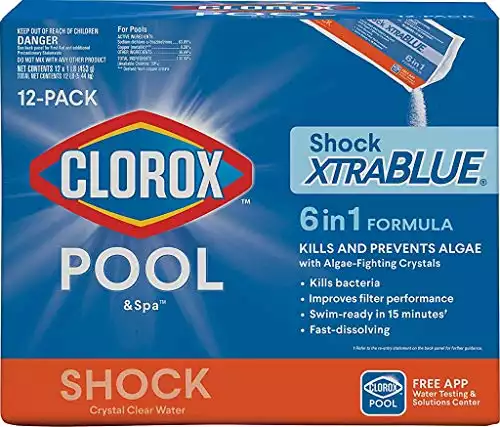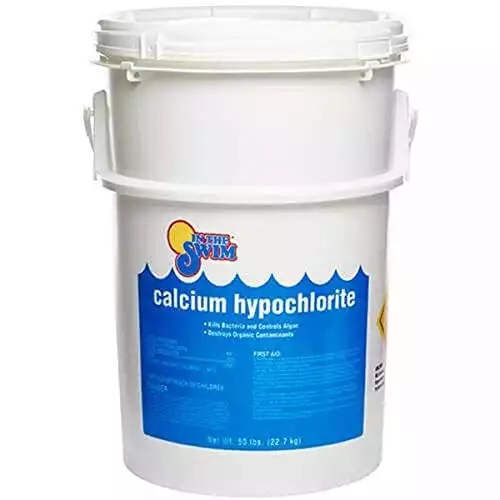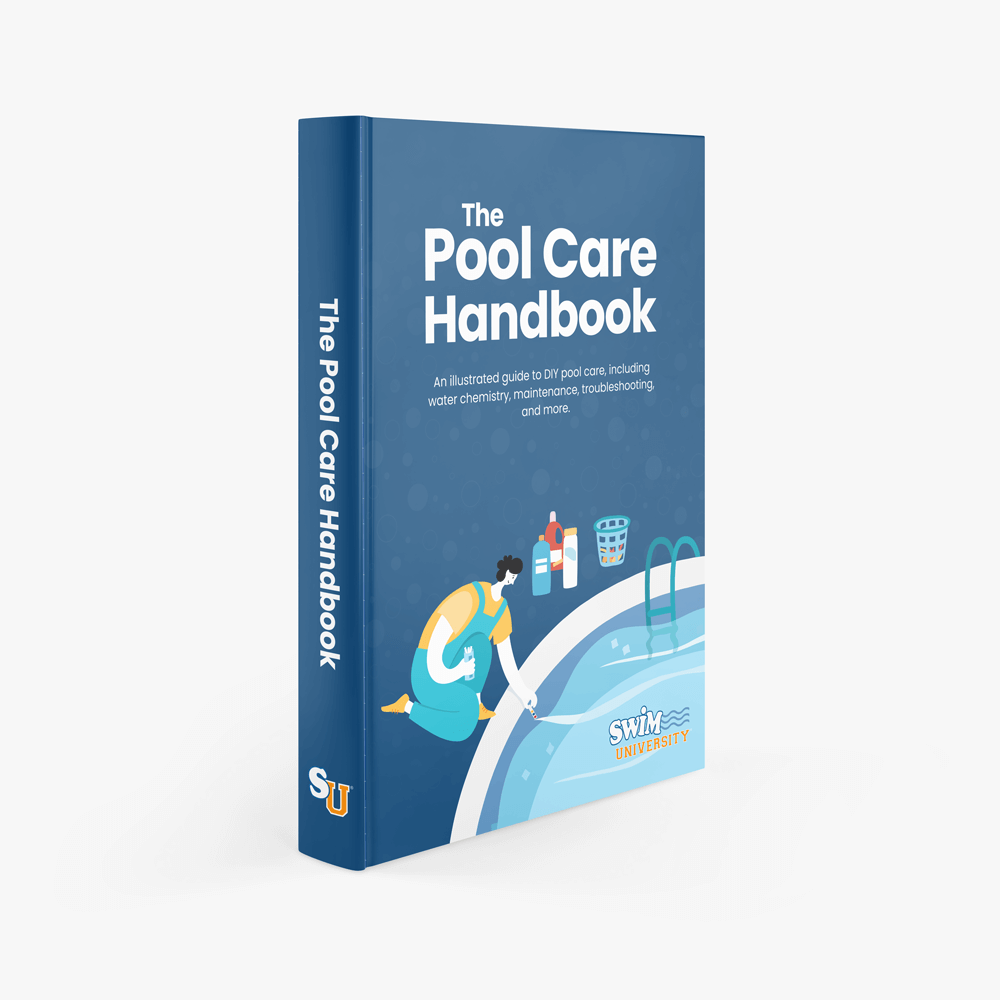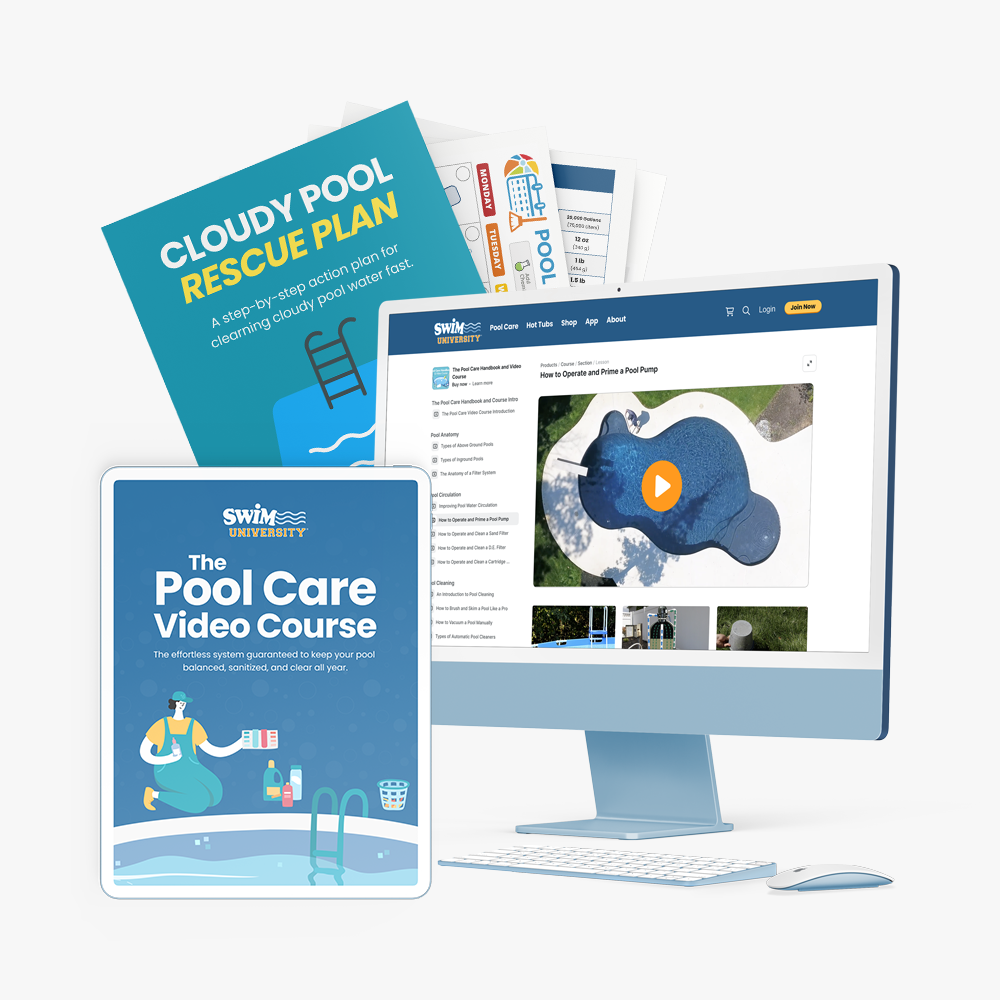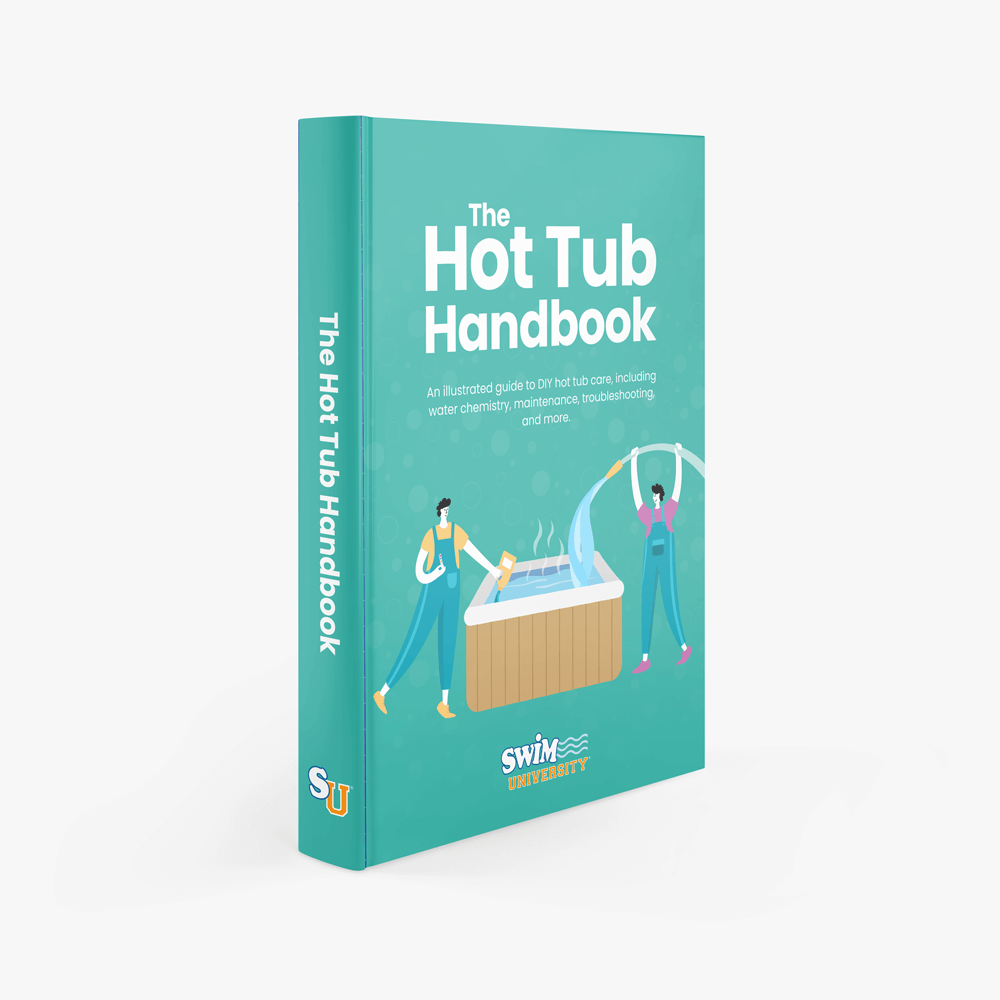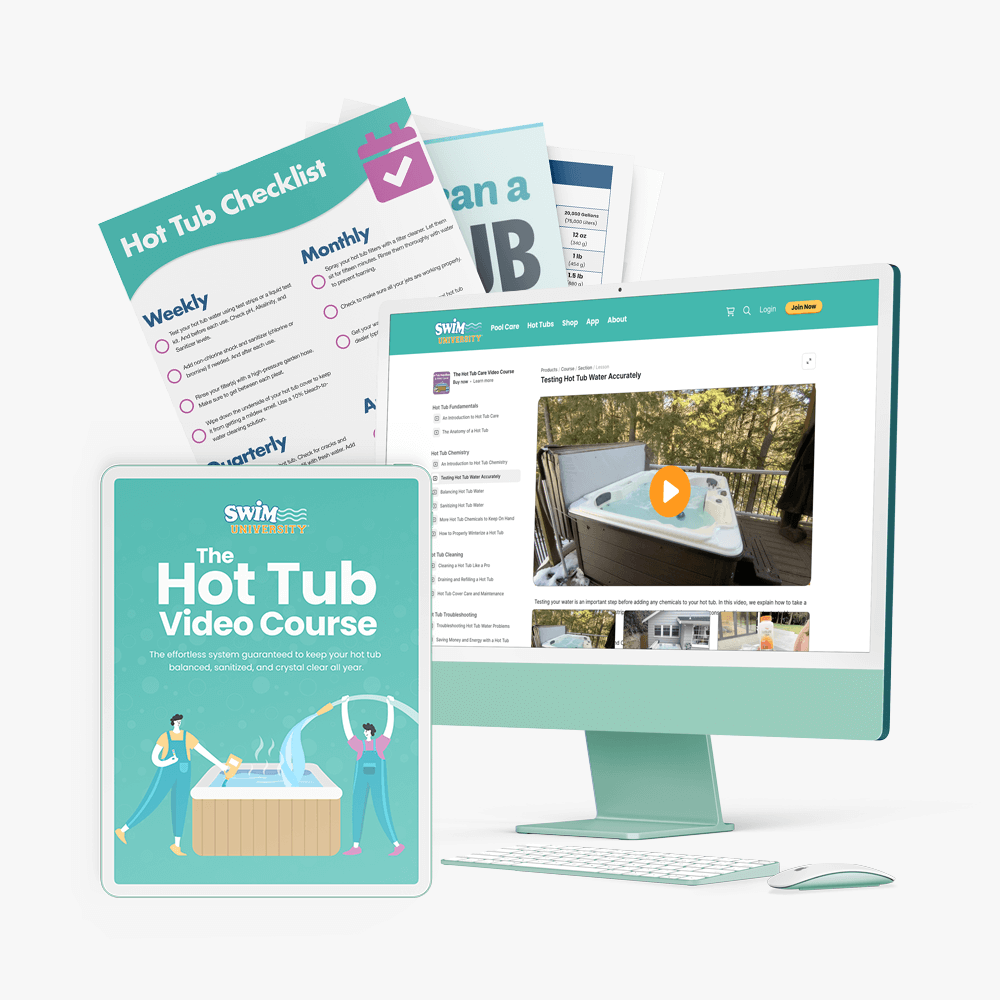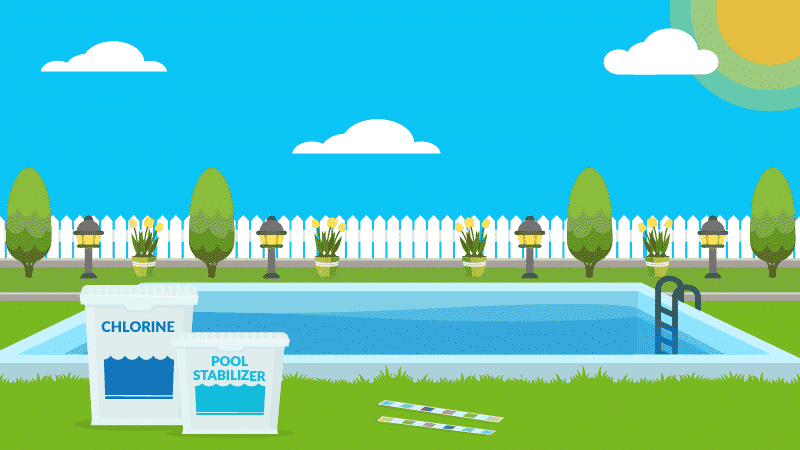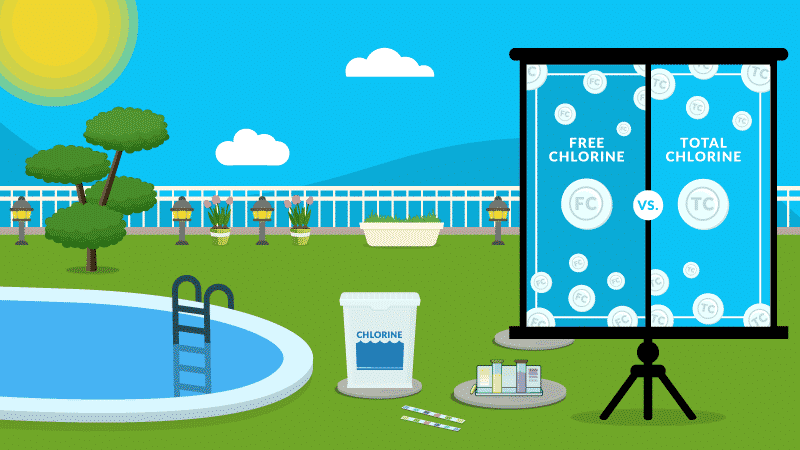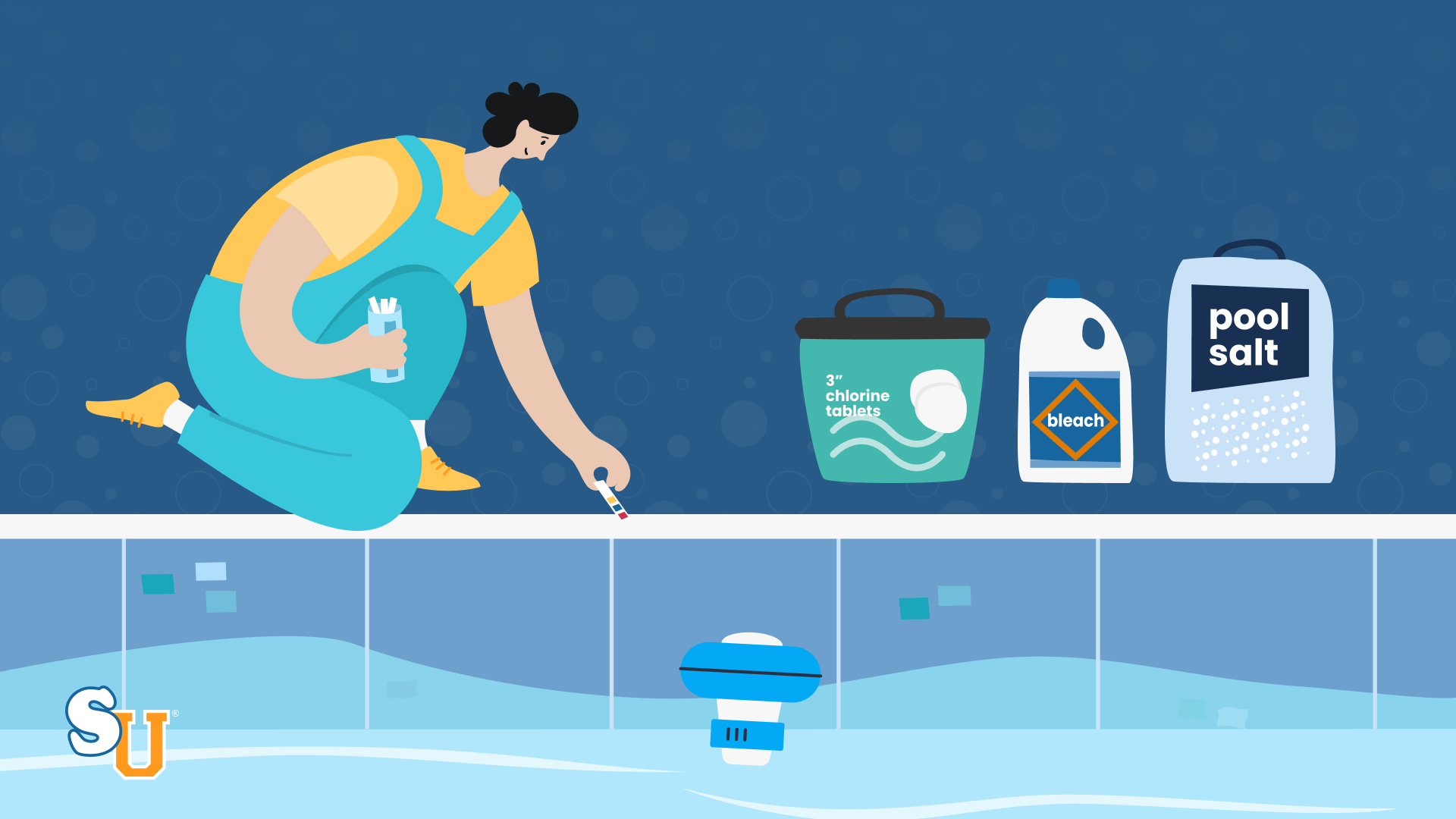Liquid Chlorine or Chlorine Granules: What’s the Difference?
You have to make a lot of important choices as a pool owner. Chlorine or salt water? Manual vacuum or robotic pool cleaner? Inflatable dolphin or flamingo? No one answer is the right one. It often simply depends on personal preference.
The choice between liquid chlorine and chlorine granules is no different. Just like anything, they each have their pros and cons. Before you decide which one to use to keep your pool clean, it helps to know a little more about each type.
Watch the quick comparison video below or keep reading for the complete guide on how to decide on the best type of chlorine for your pool.
Liquid Chlorine and Chlorine Granules Both Sanitize
Chlorine is the most popular chemical used as a pool sanitizer to keep the water clean, and keep contaminants such as algae from growing. It’s inexpensive, effective, and easy to use, regardless of its form.
How Does Chlorine Work?
Chlorine is a result of a process called electrolysis. It sanitizes by breaking the cell walls of microorganisms such as bacteria and algae, and then oxidizing them, which kills or deactivates them.
As the chlorine completes this process, it also breaks down, becoming less and less effective. This is why you need to add chlorine to your pool on a regular basis.
Liquid or granules, both types will sanitize your pool equally well.
Liquid Chlorine
This type is super easy to use because all you have to do is pour it directly into the pool. Done. No muss, no fuss. Well, almost none.
Liquid chlorine is made by bubbling the gas form of chlorine through caustic soda. It has a high pH of around 13. Liquid chlorine is used mainly in large commercial or high traffic pools because it can added in bulk. For this purpose, it’s even available in 55-gallon drums.
For smaller, residential pools, its cost may outweigh its efficiency. Liquid chlorine, though often less expensive than other forms, needs much more acid to be added to the water to counteract the high pH. It’s also highly corrosive, which could lead to damage of your pool walls or other surfaces if you’re not careful when using it.
For an easy-to-use shock to get rid of algae and cloudy water fast, try using liquid shock.
Chlorine Granules
Also referred to as powder chlorine, this is the most common form of chlorine used by private pool owners. Chlorine granules are often a little more expensive than the liquid type, and it’s just as easy to use.
Granules also have a lower pH, meaning you won’t spend as much on acid to maintain proper water balance.
Chlorine granules are available in two types:
Dichlor
Its full name is sodium dichloro-s-triazinetrione or dichloroisocyanuric acid. It’s a lot easier to just call it dichlor, right? It has a low pH of about 7, so you won’t have to use as much acid to balance your water. It also dissolves rapidly, and begins to work on contaminants immediately.
It contains about 62% actual chlorine per pound. Dichlor is stable and is more expensive than other options, but it can also be used as pool shock.
This multifunctional pool shock from Clorox comes in a 12-pack. The algae-fighting granules create crystal clear water by killing bacteria and organic contaminants. It works well for smaller pools and saltwater pools. As a dichlor-based stabilized cholorine shock, it does contain cyanuric acid.
Calcium Hypochlorite
Also known as cal hypo, this is one of the most popular chlorine treatments as it’s one of the most cost effective. It contains about 65% chlorine with a pH of 12. This will require more acid to properly balance your water.
It’s inexpensive, but it’s unstable, and breathing the fumes can be dangerous. Use caution.
Make Your Decision
Which type of chlorine you use will largely depend on how it will be used, and your budget. Liquid chlorine may be a good choice if you have a large pool, but the costs associated with it, and the available chlorine per pound could mean that chlorine granules are the better option.
In the end, both liquid chlorine and chlorine granules will do their job and keep your pool clean and clear. Once you make your decision, be sure you handle the chlorine carefully and follow the manufacturer instructions carefully to add it properly, and stay safe while doing so.
Happy Swimming!
3 Ways We Can Help With Your Pool
- Pool Care Cheat Sheets (Free): Easy-to-use downloadable guides to help you keep track of taking care of your pool this year.
- The Pool Care Handbook: An illustrated guide to DIY pool care, including water chemistry, maintenance, troubleshooting, and more.
- The Pool Care Video Course: You’ll get 30+ step-by-step videos and a downloadable guide with everything you need to know about pool maintenance.

